How our work supports the UN’s Sustainable Development Goals
What are the Sustainable Development Goals?
The Sustainable Development Goals (SDGs) are a collection of 17 interlinked global goals designed to be a “blueprint to achieve a better and more sustainable future for all” set by the United Nations (UN). They’re intended to be achieved by the year 2030.
The goals recognise that ending poverty must go hand-in-hand with strategies to improve health, education, AND our climate and natural world. As an environmental organisation, we know our campaigns have a global impact and the SDGs provide a useful and shared framework to work towards. By putting our work in this globally recognised framework, we can better understand and demonstrate how our work is changing the world for good.
Why are they important?
Social, environmental, and economic justice go hand in hand. The SDGs help us see how our work links these things together. When we campaign to stop plastic pollution from period products, we also embed the empowerment of women into our campaigns. When we campaign to stop plastic pollution, we know we are also part of the fight against climate change.
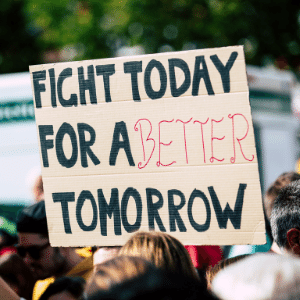
Which SDG’s are we supporting?
Through matching our operations and campaigns to the SDGS, we’ve identified which goals we are contributing to and which of the targets we are supporting and how. As part of our commitments to the SDG’s, we will be benchmarking and reporting annually on our work to achieve these.
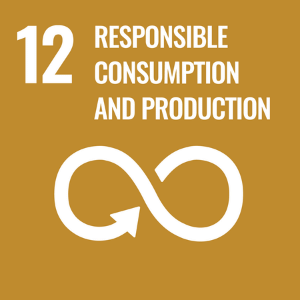
Responsible Consumption and Production
Goal: To ensure sustainable consumption and production patterns
Worldwide consumption and production rely on the use of the natural environment. At City to Sea we champion circular economies to stop the plastic pollution that comes from our disposable single-use culture. At the heart of our campaigns sits the waste hierarchy ensuring that we prioritise reduction and reuse before recycling products.
Of the 11 targets in this goal, City to Sea is working towards:
- By 2030, achieve the sustainable management and efficient use of natural resources
- By 2030, substantially reduce waste generation through prevention, reduction, recycling and reuse
- Encourage companies, especially large and transnational companies, to adopt sustainable practices and to integrate sustainability information into their reporting cycle
- By 2030, ensure that people everywhere have the relevant information and awareness for sustainable development and lifestyles in harmony with nature.
We’re working towards these goals particularly through our Refill campaign and our Plastic Free Periods campaign and as we continue to push for reuse models over single-use consumerism.
Life Below Water
Goal: To conserve and sustainably use the oceans, seas and marine resources for sustainable development.
Oceans cover almost three quarters of the planet, comprising the largest ecosystem on Earth. And they also sit at the heart of City to Sea’s campaigns. We look to stop the most commonly found single-use plastic items found in our oceans. This includes our Refill campaign stopping plastic bottles and lids, our #SwitchTheStick campaign stopping cotton buds and our Plastic-Free Periods campaign stopping period products.
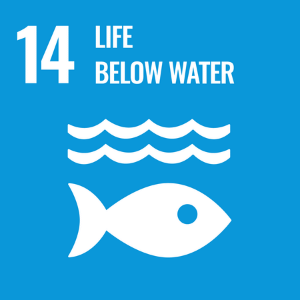
Of the 9 targets in this goal, City to Sea is working towards:
- By 2025, prevent and significantly reduce marine pollution of all kinds, in particular from land-based activities, including marine debris and nutrient pollution
- By 2020, sustainably manage and protect marine and coastal ecosystems to avoid significant adverse impacts, including by strengthening their resilience, and take action for their restoration in order to achieve healthy and productive ocean.
- By 2020, conserve at least 10 per cent of coastal and marine areas, consistent with national and international law and based on the best available scientific information.
-
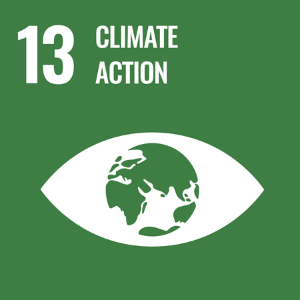
Climate action
Goal: To take urgent action to combat climate change and its impacts
Carbon dioxide (CO2) levels and other greenhouse gases in the atmosphere are rising to record levels as the climate emergency continues to heighten. At City to Sea we understand that plastics and climate change are two side of the same environment-damaging coin.
Of the 5 targets in this goal City to Sea are working towards:
- Integrate climate change measures into national policies, strategies and planning
- Improve education, awareness-raising and human and institutional capacity on climate change mitigation, adaptation, impact reduction and early warning
- Promote mechanisms for raising capacity for effective climate change-related planning and management in least developed countries and small island developing States, including focusing on women, youth and local and marginalized communities
Clean Water and Sanitation
Goal: To ensure availability and sustainable management of water and sanitation for all
While substantial progress has been made in increasing access to clean drinking water and sanitation, billions of people—mostly in rural areas—still lack these basic services. Worldwide, one in three people do not have access to safe drinking water.
At City to Sea we have a thirst for change and this includes ensuring access to clean and safe drinking water for the public. Since its inception in 2015, Refill, has been connecting thirsty people to over 30,000 refill stations around the world – from drinking water fountains to businesses we’ve been putting taps on the map and continue to do so as the campaign grows.

Of the 8 targets in this goal, City to Sea is working towards:
- By 2030, achieve universal and equitable access to safe and affordable drinking water for all
- By 2030, improve water quality by reducing pollution, eliminating dumping and minimizing release of hazardous chemicals and materials, halving the proportion of untreated wastewater and substantially increasing recycling and safe reuse globally
- By 2030, protect and restore water-related ecosystems, including mountains, forests, wetlands, rivers, aquifers and lakes
- By 2030, expand international cooperation and capacity-building support to developing countries in water- and sanitation-related activities and programmes, including water harvesting, desalination, water efficiency, wastewater treatment, recycling and reuse technologies
- Support and strengthen the participation of local communities in improving water and sanitation management.
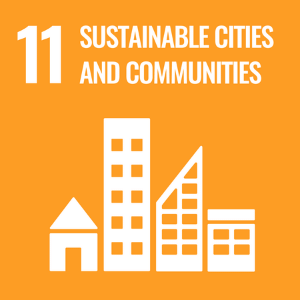
Sustainable Cities and Communities
Goal: To make cities and human settlements inclusive, safe, resilient and sustainable
Today, more than half the world’s population lives in cities. By 2030, it is projected that 6 in 10 people will be urban dwellers. At City to Sea we’re working hard to help people connect their daily actions to how they are impacting plastic pollution in our waterways. This is why our campaigns focus on cutting single-use plastics in our cities. Our award-winning Refill campaign for example is designed to help people in our cities to reduce the amount of waste they produce. With the new expanded Refill app there is now really no excuse for single-use!
City to Sea is working towards the following goal in this target:
- By 2030, reduce the adverse per capita environmental impact of cities, including by paying special attention to air quality and municipal and other waste management
Gender Equality
Goal: To achieve gender equality and empower all women and girls
Gender equality is not only a fundamental human right but a necessary foundation for a peaceful, prosperous and sustainable world. At City to Sea we think that campaigning to ensure that all girls and women are empowered and educated to be able to choose what period products they use is a central part of that. This is why, as well as campaigning on Plastic Free Periods, we also established our Rethink Periods education program offering independent and impartial advice to school-age children.

Of the 9 targets in this goal City to Sea is working towards:
- Ensure universal access to sexual and reproductive health and reproductive rights as agreed in accordance with the Programme of Action of the International Conference on Population and Development and the Beijing Platform for Action and the outcome documents of their review conferences
- Adopt and strengthen sound policies and enforceable legislation for the promotion of gender equality and the empowerment of all women and girls at all levels.
Evaluating our operations against the SDG’s
Not only are we considering the SDG’s in our campaigns but also in terms of our operations. We have used the B-Corp SDG manager tool to evaluate our processes, policies and vetting of our supply chain impacts. We will be using this annually to acknowledge our progress and recommending it to our partners, stakeholders and anyone reading this far down the page! If you work somewhere and want to encourage your organisation to look at the SDG’s- try out this checkbox exercise to give you some key pointers.

